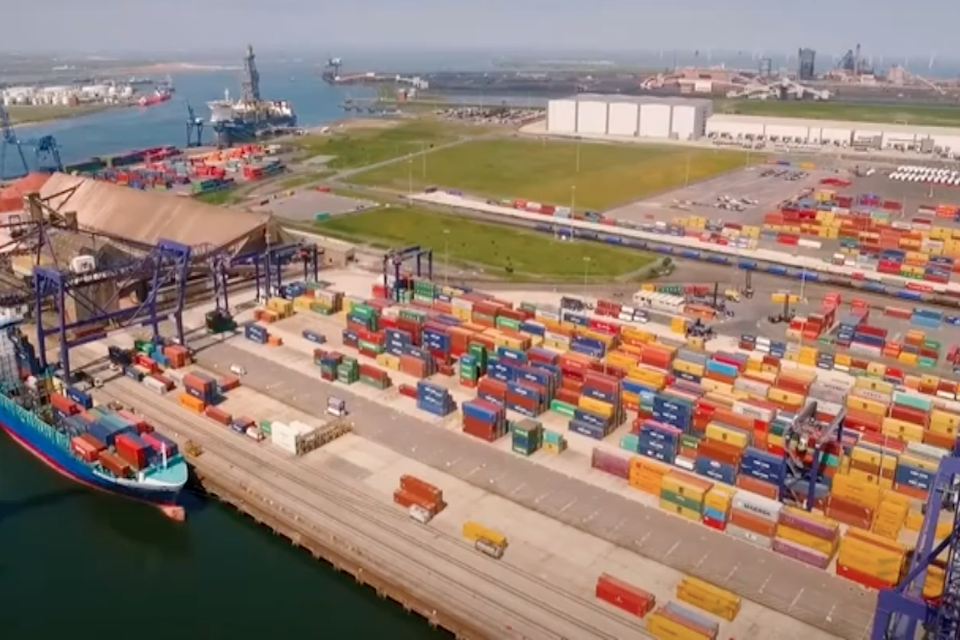Freight figures in billion pound Teesside transport plan

The predominantly industrial community of Teesside in the northeast of England is set for a significant transport upgrade. The region will benefit from projects that boost air, sea, road and rail connectivity. Rail freight operations in the heavily industrialised area feature in several of the infrastructure enhancements.
A one billion pound (1.16bn euros) programme of transport works has been approved by the five local authorities that make up the Tees Valley. Rail freight will benefit from schemes that include upgrades and gauge clearance work on the Eaglescliffe to Northallerton line, facilitating better intermodal connections, and capacity enhancements around the port of Middlesborough.
Mayor says HS2 money better spent locally
Ben Houchen, the outspoken metropolitan mayor for Tees Valley, has claimed that a one billion pound (1.16 billion euro) package of transport works will unlock a wealth of economic potential. The region has been underperforming since much of its traditional Industrial base was lost in the latter part of the twentieth century. Houchen has claimed that funds released from the cancelled Northern Leg of HS2, the high-speed rail project, will underwrite the programme.

Houchen has said that the cancelled HS2 Northern Leg would have given no benefit to Teesside. He argues that the money released will be far better spent on local projects – more than twenty of them, in fact. “This is an investment in transport on a scale that our region has never seen before”, he said. “HS2 has no benefit at all to the North East. To see investment for Teesside, Darlington, and Hartlepool was long overdue.”
Tees still a workshop of Britain
The region has seen a radical decline in traditional industries. However, the endless swathes of modern warehouses and factories along the River Tees are a stark reminder that the region is still very much a workshop of Britain. Rail freight plays a significant role in the region, and it is included in the transport plans outlined by the mayor.

Teesport, one of the biggest container terminals in Europe, generates a significant fraction of the region’s traffic. Other active rail freight sites include Redcar Docks and Bulk Terminal (aggregates and bulk handling); Middlesborough intermodal; a variety of sites around the metals industries; and Middlesborough Tees Yard (marshalling). There is even a rail connected ‘energy from waste’ power station.
Intermodal handling improvements and new opportunities
Part of the vast Tees Yard will be redeveloped as a passenger transport interchange. However, its primary functions, as freight terminal and marshalling yards, will remain prominent. At 150 million pounds (174 million euros), the interchange project represents the biggest rail-related project within the programme. Only an ambitious road alignment around Darlington is more expensive (at 250 million pounds – 290 million euros). Darlington is a big winner in the programme. The city’s station is already subject to extensive redevelopment.
The handling of intermodal traffic on Teesside may well be enhanced too. Access to the Tees Yard and Middlesborough’s industrial centre will be improved. That will come thanks to an extensive upgrade to the Northallerton to Eaglescliffe route. Priced at 35 million pounds (41 million euros), those works will improve gauge clearance on the direct route from the East Coast Main Line. Enhancements also to the main east-west line through Middlesborough could open rail freight opportunities along the line, which already carries mixed traffic as far as Redcar and Saltburn. That line continues, freight only, eastwards to the important phosphates mine at Boulby.





